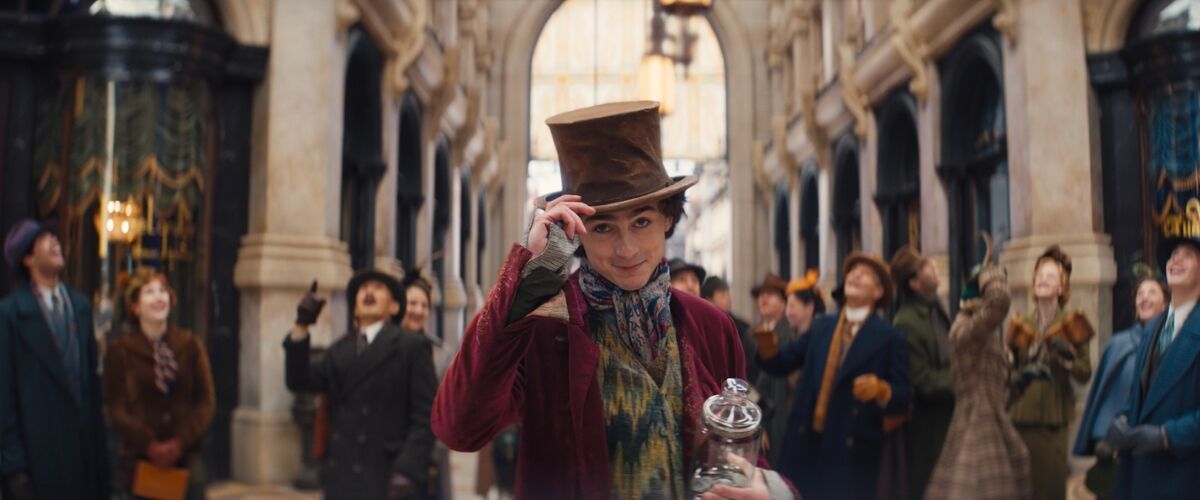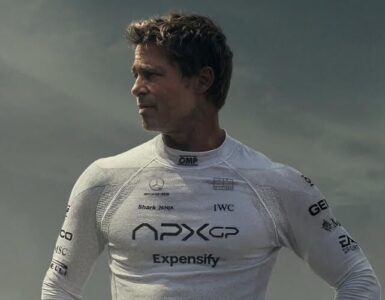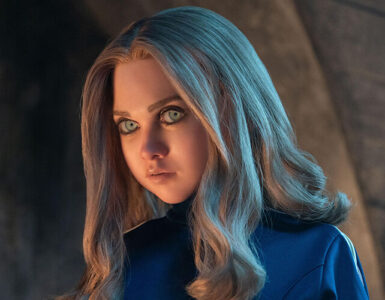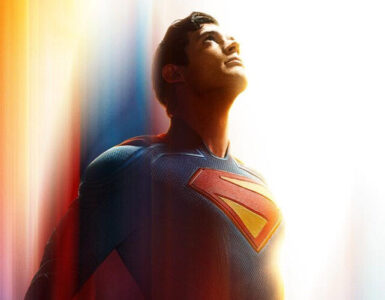The idea of a musical-prequel origin story for Willy Wonka, the eccentric chocolatier from Roald Dahl’s 1964 classic, might raise eyebrows at first glance. However, under the deft hands of director Paul King and writer Simon Farnaby, known for their work on Paddington, this concept flourishes into an enchanting holiday spectacle.
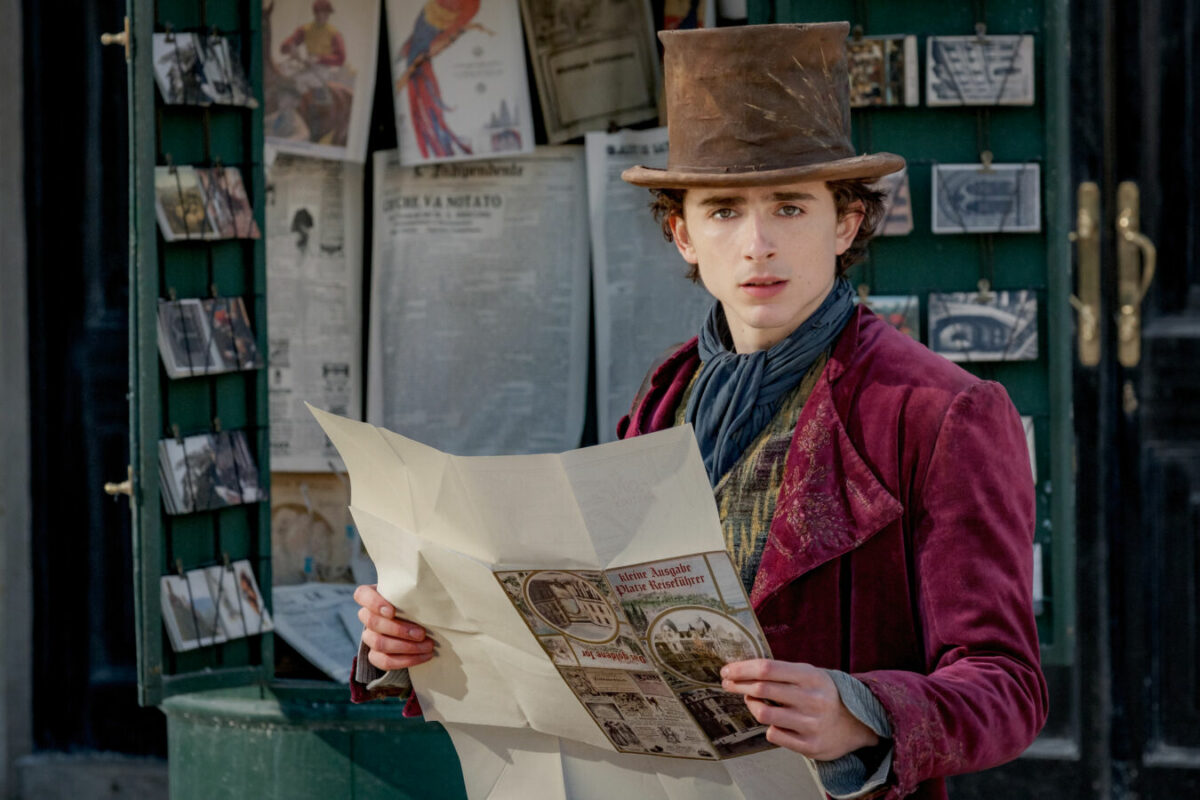
Wonka, with Timothée Chalamet portraying a young version of the famed chocolatier, breathes new life into Roald Dahl’s beloved universe. A prequel to the book and not the Hollywood film adaptations, Chalamet’s Wonka, fueled by his ambitious chocolate-making dreams, redefines the character with a blend of charm and ingenuity.
Despite previous cinematic iterations, notably Gene Wilder’s iconic performance in the 1971 movie and Tim Burton’s 2005 adaptation starring Johnny Depp in the titular role, King’s version of Wonka forges its own identity. It may not entirely capture the subversive magic of Wilder’s portrayal, but it offers its distinct blend of sweetness and delight.
When you settle in to watch Wonka, the abundance of singing and dancing might come as a surprise, yet fitting for a story entrenched in the Willy Wonka legacy. Unlike Netflix’s Matilda, which drew inspiration from a Tony-winning stage play, Wonka crafts its own musical identity. The soundtrack, featuring new numbers including A Hat Full of Dreams written by Neil Hannon of The Divine Comedy fame, adds a lively and creative touch to the narrative.
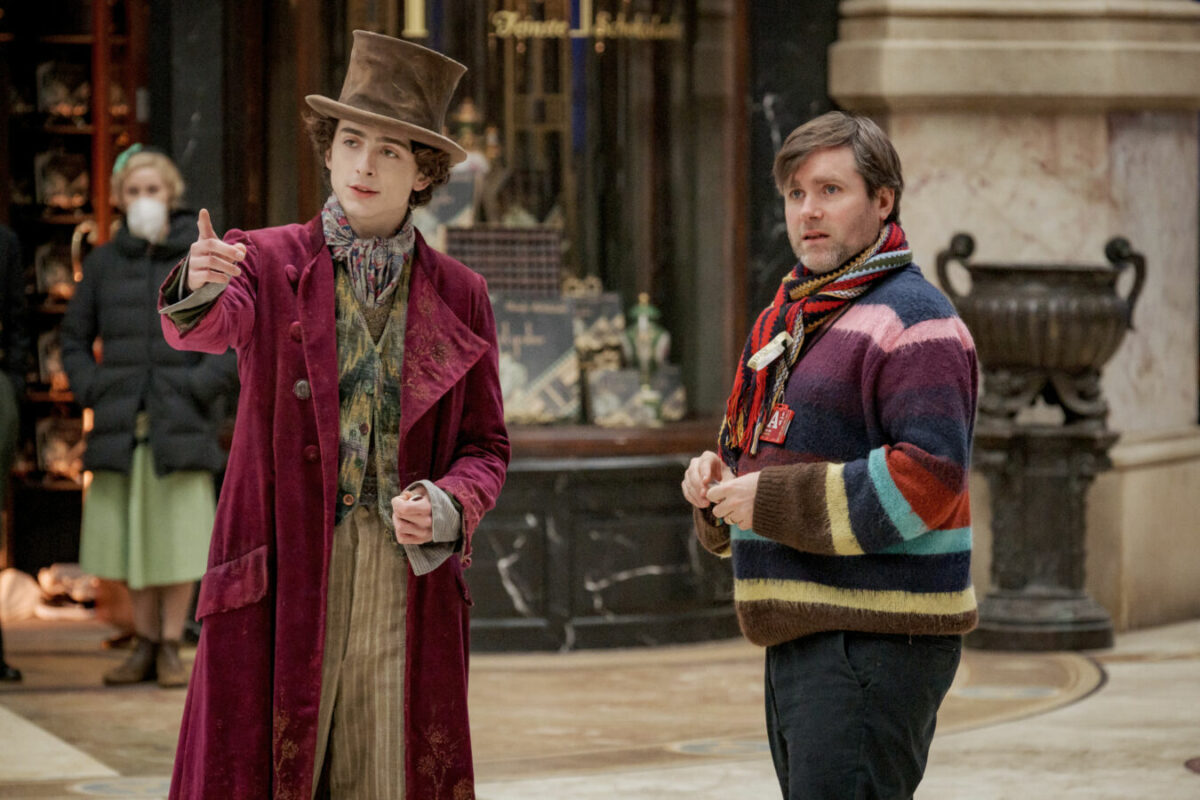
King, celebrated for his work on the Paddington films, is a perfect match for the whimsical world of Wonka. While the film may not venture into the bold, psychedelic realms of the 1971 version, it maintains a joyful spirit reminiscent of films such as Mary Poppins. Given the industry’s penchant for backstories, this Wonka prequel seemed inevitable. Fortunately, King, Farnaby, and producer David Heyman – the team behind Paddington 2 – bring their best to this project, creating a film that is as endearing as it is surprising.
Chalamet’s performance balances innocence with a subtle hint of the enigmatic qualities that define the adult Willy we know from Dahl’s stories. Interestingly, the film chooses not to delve into the darker aspects of Willy Wonka’s character.
Willy Wonka, as a character, possesses a complex and ambiguous nature. His eccentricity and unconventional methods, coupled with the bizarre consequences faced by rule-breaking children in his factory (like Augustus Gloop being sucked into a pipe or Violet Beauregarde turning into a blueberry in the 2005 Charlie and the Chocolate Factory movie), often hint at a darker, more enigmatic side in various adaptations of Roald Dahl’s story.
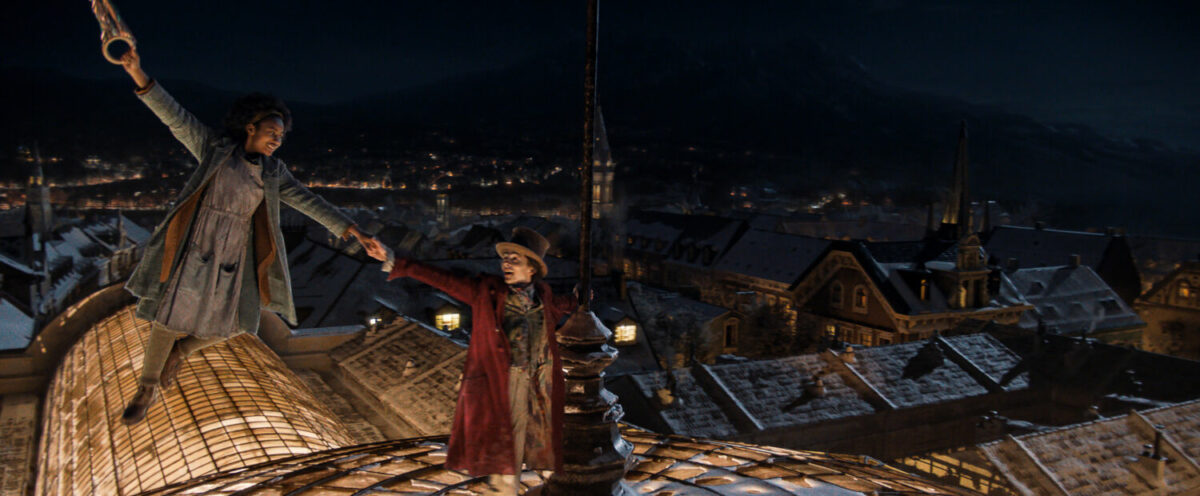
Instead, the movie focuses on the brighter side of his persona, showcasing his journey from a young man chasing cocoa-based dreams to the master chocolatier we know. This decision to sidestep the deeper, possibly darker origins of Wonka’s character might disappoint some fans but offers a more universally appealing narrative to the contemporary audience.
Chalamet’s performance, while respectful of Gene Wilder’s and Johnny Depp’s portrayals, is distinctly his own. His musical numbers, filled with open-hearted, sunny tunes, showcase his zest and commitment to the character. He successfully balances the whimsicality of Wonka with a grounded, relatable charm. The portrayal of Wonka here is less about the eccentricity and more about the young man who is filled with dreams and ambitions, far removed from the cynic he becomes. This allows audiences to see a different side of the character, one that is less a figure of mystery and more a beacon of youthful hope and creativity, a stark contrast to the more ambiguous adult character seen in previous adaptations.
Fueled by the warmth of his mother’s memory (Sally Hawkins) and the unwavering support of a ragtag crew of future colleagues, Willy embarks on his extraordinary journey to share his chocolates with the world. Among them shines the ever-optimistic Noodle (Calah Lane), a kindred spirit and Willy’s best friend who holds her own with the older and more seasoned members of the group. Noodle’s unwavering loyalty and infectious enthusiasm become Willy’s guiding light, propelling him forward even when the odds seem insurmountable.
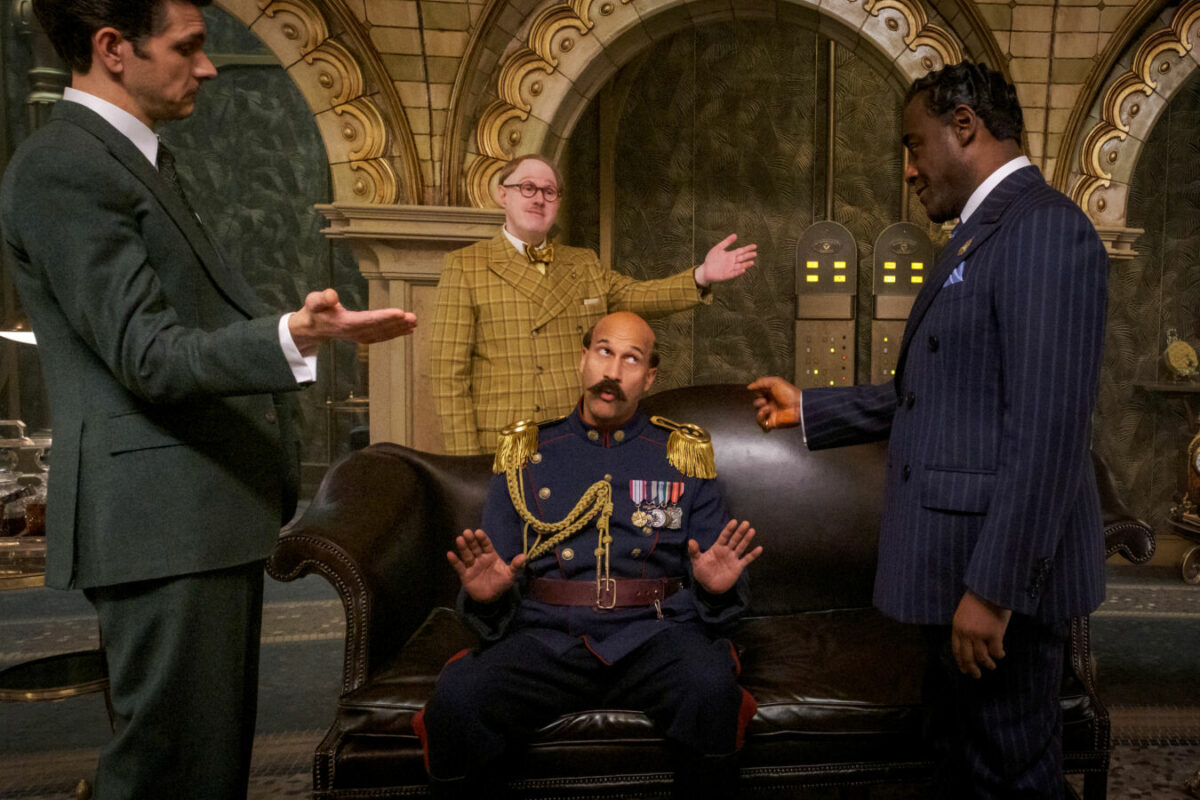
Willy challenges the established chocolate industry norms represented by the ‘Chocolate Cartel’, a trio of wealthy candymen played by Matt Lucas, Paterson Joseph, and Matthew Baynton, who view sweets as simple, profit-driven commodities. Their performances are a perfect blend of creepiness and humour, complementing Chalamet’s central role and enriching the film’s narrative tapestry. This opposition between the imaginative Willy and the cartel’s utilitarian approach is brilliantly captured through both the film’s narrative and its visual language, emphasising the thematic conflict at the heart of the story.
The supporting cast, especially Hugh Grant as the disgraced Oompa-Loompa Lofty, is particularly noteworthy, delivering a memorable, standout performance and bringing an entertaining twist to Dahl’s imaginative world with his haughty and entitled demeanour. Digital effects transform him into a 20-inch guardian of the chocolate legacy, infusing humour and character into the film.
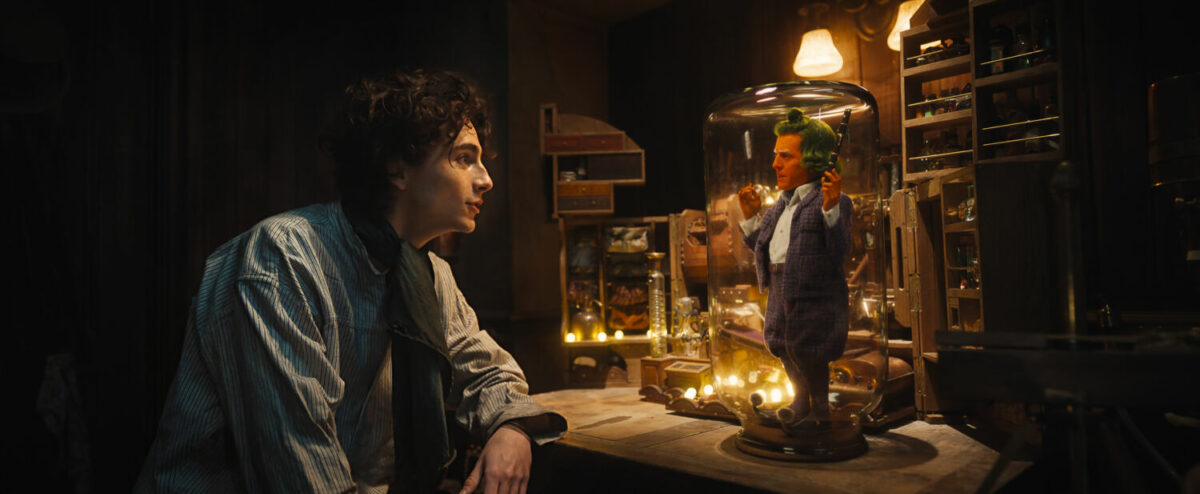
Olivia Colman’s Mrs. Scrubbit and Tom Davis’ Mr. Bleacher, the oppressive couple thwarting young Wonka, add a delightful mix of menace and comedy and provide some of the film’s most humourous moments. Their quirky, often absurd, interactions add to the film’s whimsical tone. Meanwhile, Rowan Atkinson, as a chocoholic priest, showcases his legendary physical comedy, adding another layer of humour to the film. Jim Carter’s portrayal of Wonka’s wise ally and forensic accountant Abacus Crunch adds a touch of wisdom and insight, and Keegan-Michael Key’s chocoholic police chief, though limited, provides welcome comic relief. While the police chief offers comedic relief, his character feels somewhat confined to a one-dimensional role and a one-note joke. While played by a talented actor, the character fails to make a significant impact on the broader story.
Despite these minor shortcomings, the film’s brisk pace ensures that these issues do not detract significantly from the overall experience. Wonka, under Paul King’s imaginative direction, is not just a cinematic journey into the past of a beloved character; it’s a vivid celebration of creativity, ambition, and the joy of making dreams a reality. The film, with its vibrant musical numbers and a talented ensemble cast, manages to capture the essence of Roald Dahl’s magical world while offering a new, delightful take on the origin story of the famous chocolatier. The whimsical production and costume design, coupled with memorable performances from the cast, particularly Timothée Chalamet and Hugh Grant, create an enchanting experience for viewers.
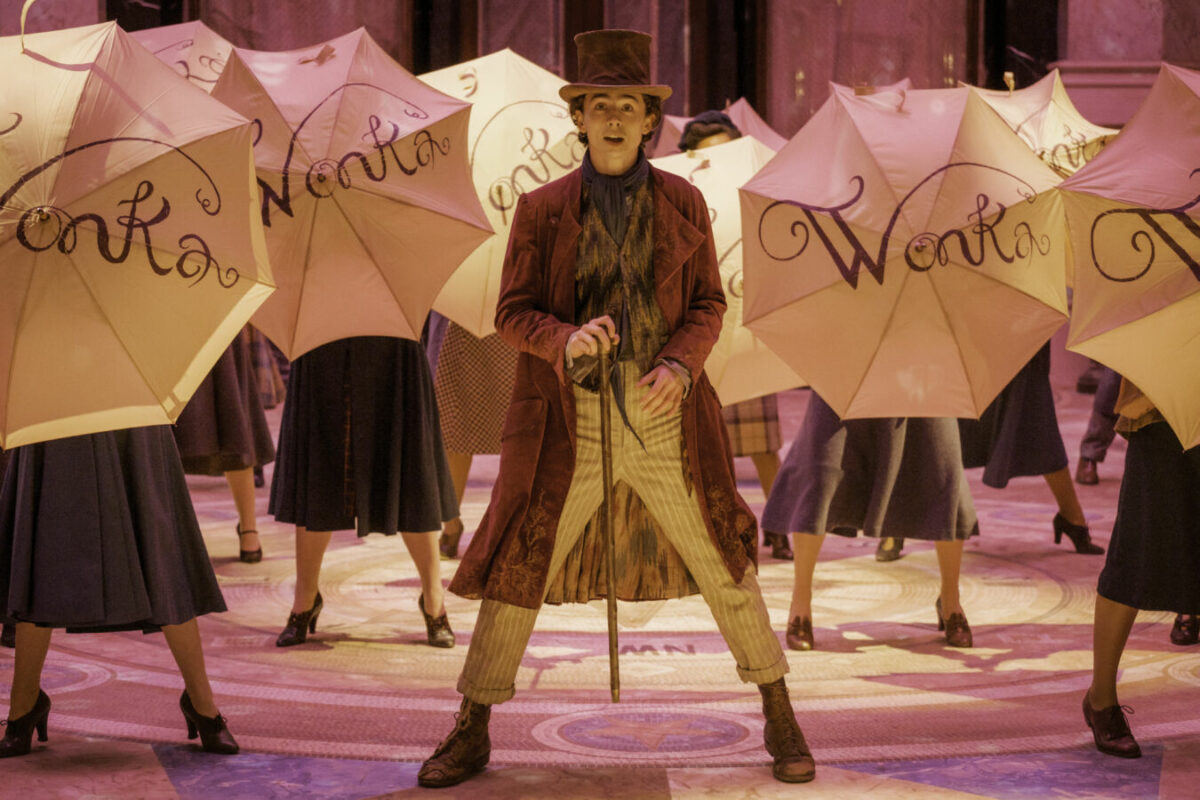
As Wonka concludes, it leaves the audience with a sense of wonder and a renewed appreciation for the power of imagination. Wonka succeeds in delivering a heartwarming, visually stunning narrative that both honours the legacy of the original story and stands on its own as a modern holiday film classic. It’s a movie that transcends age barriers, promising to enchant both new audiences and those who grew up with the tales of Willy Wonka. This movie, with all its sweetness and light, reaffirms the enduring appeal of Roald Dahl’s world and reminds us why we fell in love with the magical, mysterious Willy Wonka in the first place.
Wonka is now showing in theatres.
GEEK REVIEW SCORE
Summary
Wonka offers a captivating and joyful journey into the early years of the iconic character, weaving a narrative rich in themes of ambition, friendship, and dreams, complemented by enchanting performances, memorable songs, and a heartwarming plot.
Overall
8/10-
Story - 8/10
8/10
-
Direction - 8.5/10
8.5/10
-
Characterisation - 7.5/10
7.5/10
-
Geek Satisfaction - 8/10
8/10

